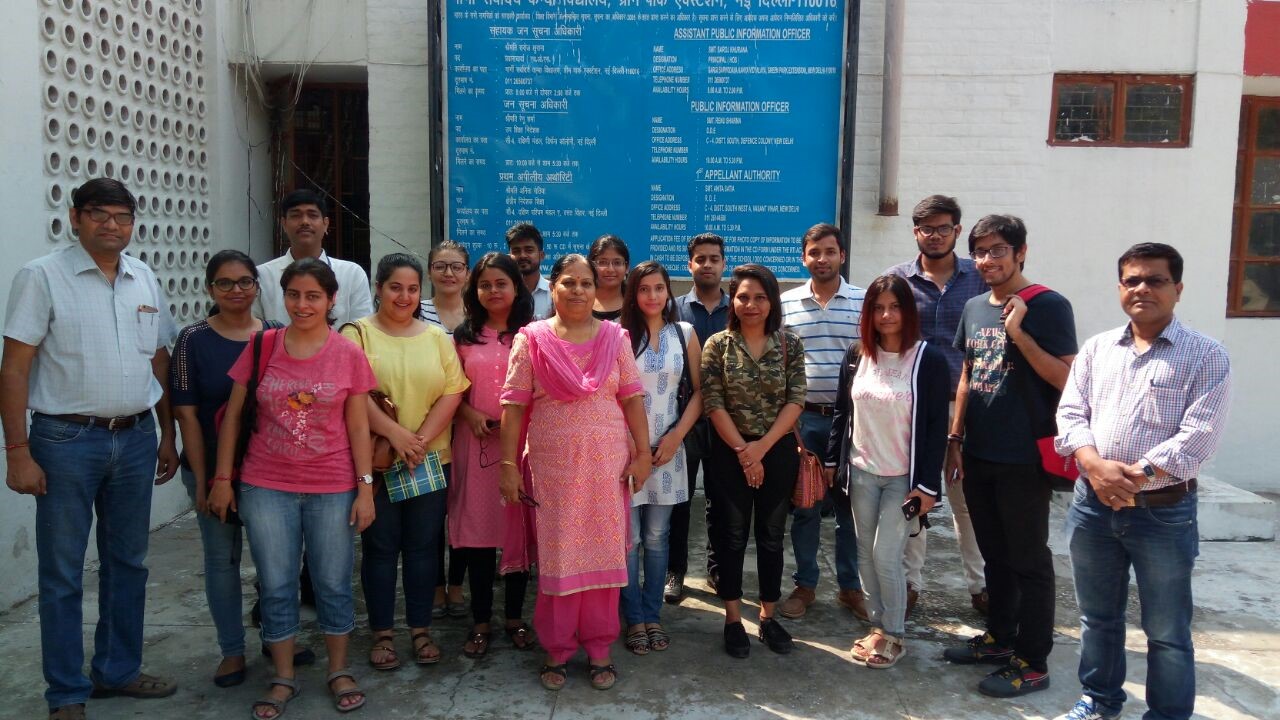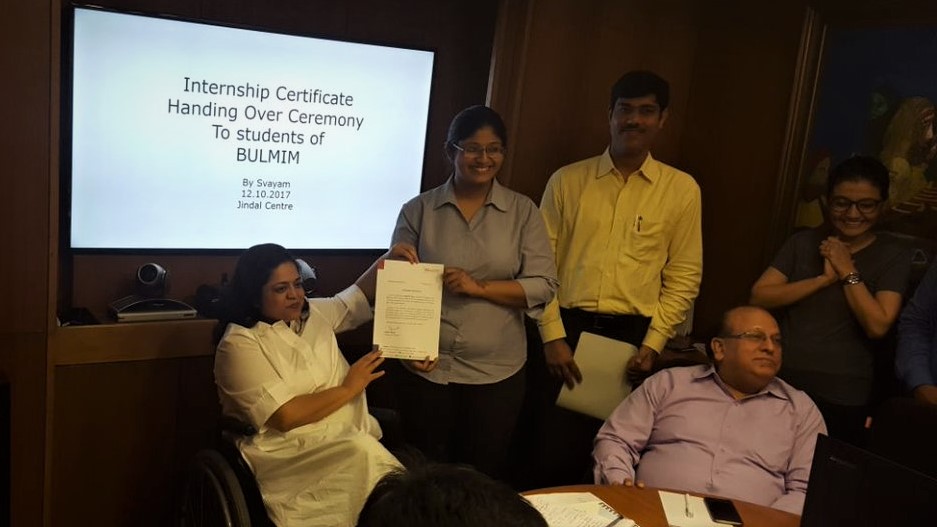Dear Readers,
Representatives of 17 organisations working among the disabled in the India, met the Union Railway Minister Shri Dinesh Trivedi on September 28, 2011 to draw attention to the problems faced by passengers with reduced mobility, the elderly in general and those with disabilities in particular, while travelling with the Indian Railways.
The delegation inter alia demanded extension of e-booking facility for the disabled, extension of concessions on tickets to all categories of disabilities enshrined in the Persons with Disabilities Act, 1995. They also demanded that concessions be provided in local and passenger trains as well, as was being provided in long distance trains.
“I find no reason why it can not be extended to persons with disabilities if it can be conveniently extended to other passengers. In fact, it is the disabled who require it most!”, expressed the Hon’ble Minister.
The members of the delegation pointed out that railway stations continues to be inaccessible despite legal mandate resulting in multiple barriers for persons with reduced mobility in using them. Ramps were rare and that too limited for entry to the first platform in big stations while there was no access to the other platforms if it were more than two. Ramps lead to the foot over-bridges which can not be climbed by persons with reduced mobility.
It was pointed out to the Minister that the Platforms do not provide accessible entry to the train. The gap (height) between the platform and the coach varies from station to station and there is no provision of ramps. There is not enough space for mobility inside the coaches. Toilets cannot be used by persons with certain disabilities. In this light, they demanded that the railways should set up a task force on access and go in for universal design. They also demanded that battery operated cars now provided at some stations should be made available at all major stations and platforms.
The Hon’ble Minister suggested that they would consider placing a mobile ramp in front of the coach designated for the disabled so that they could conveniently use the coach specially reserved for them in the long distance trains.
The delegation also pointed out that for the past many years the railways have not made recruitment to fill the 3 per cent quota for disabled persons mandated by the PWD Act. In the matter of promotions also, despite court orders, reservations in promotions are not being implemented. It was also brought out that employees acquiring disability during their service who are protected under Section 47 of the the Act were silently being accommodated against the minimum 3% reserved employment quota which was against the mandate of the Persons with disabilities Act 1995. They urged upon the minister to fill the backlog both in employment and promotions without delay and implement the reservation policy as per the mandate of the law.
Mr. Dinesh Trivedi gave a patient hearing to the delegation. He assured the delegation to consider their demands sympathetically. He also stressed the need for the railways being more sensitive to the issues of the disabled.
The delegation was led by Ms.Brinda Karat, CPI(M) Polit Bureau member and ex member of parliament and comprised of Mr. Muralidharan, Assistant Convener of the National Platform for the Rights of the Disabled, Mr. Rajive Raturi of the Human Rights Law Network, Mr. Subhash Chandra Vashishth of Svayam, Mr. Abdool Mabood of Snehi amongst others. They submitted a memorandum to the minister, in which they welcomed the decision to extend concessions to the disabled in Shatabdi and Rajdhani trains. This was one of the demands that was raised with the ministry earlier. However, many other issues continue to remain unaddressed. Some urgent issues mentioned in the memorandum are as follows:
Concessions
(i) Extend concession to all trains: The railways have been providing concessions for disabled persons in mail and express trains, which now has been extended to Rajdhani and Shatabdi also. But the concession is not provided in local and passenger trains and the Garib Rath. We request that concessions be provided on these trains also.
(ii) Validity of disability certificates: Currently, a separate certificate has to be obtained for availing railway concession. The railways should accept disability certificates or cards as valid proof of the disability of the concerned person and do away with the requirement of a separate certificate.
(iii) Travelling without Escorts: Except for visually impaired persons and the hearing and speech impaired, currently all other disabled persons have to invariably travel with escorts if they have to avail concession. This restricts their right to travel. All disabled persons who are capable of travelling independently like persons with locomotor disabilities should be allowed to travel with or without escort.
(iv) Concession to mentally disabled persons: People with mental illness are included in the PWD Act but they are not provided concessions in the railways. All those classified as disabled in the PWD Act should be provided concession in the railways.
(v) Concession on tatkal tickets: The usual concession given on other tickets should also be provided for bookings made under tatkal.
E-booking facility
E-booking facility should be extended to the disabled. In fact they require it more than non-disabled persons. As is done in the case of senior citizens, the TTE can verify the proof (disability certificate) during the course of the journey.
Coach for disabled
Most of the time the coach reserved for the disabled is occupied by other non-disabled travellers, railway employees and even RPF personnel in connivance with and often due to lack of proper enforcement. It should be ensured that the coach be placed next to the guard’s coach and a disability sensitive attendant be provided in these coaches to ensure that none other than disabled persons and their escorts are allowed in the reserved coach.
Accessibility
The Persons with Disability Act of 1995 mandates railway stations and coaches to be made barrier free. Its implementation, however, has been disappointing.Tactile marking should be made on the platform to guide blind persons to the exit, bridges, stairs, ticketing counters etc. Tactile markings should also be provided on the edges of the platforms. Platform numbers should be labelled in Braille both at the entry/exit points as well as on the railing of the foot over bridge. Train coaches need to be re-designed to cater to the needs of the disabled persons.
Sensitizing railway staff
The disabled encounter a lot of problems at railway counters. There is a need to sensitise all personnel working in the railways, especially those dealing directly with travellers, on issues connected with disability.


